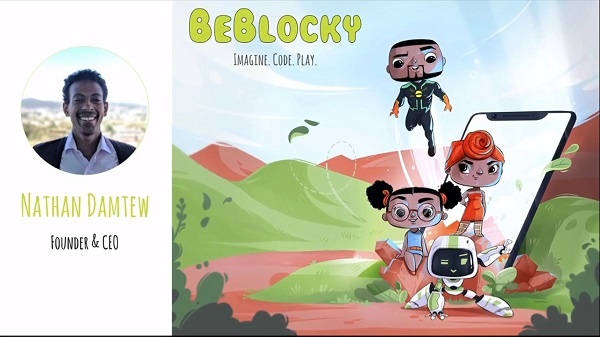
BeBlocky is a gamified programming learning app for children (6-13 years of age), to help them develop new ways of thinking and advance in valuable skills.
By Jonathan Shieber (TechCrunch)
Nathan Damtew, the founder of new Ethiopian education technology and gaming company BeBlocky, has always been interested in games.
An avid Call of Duty player, the young entrepreneur, who founded BeBlocky in his senior year of college, was always struck by the disconnection between how adept his generation was at playing games and how little they knew about how those games were built.
The problem, Nathan* thought, was especially acute across Africa, where most students are introduced to programming in high school — if they’re able to get those classes at all.
BeBlocky is his attempt to change that.
The company’s initial product is a programming learning platform for kids. It uses animated programming lessons as a traditional app and through augmented reality to teach children the basics of computer programming using a modified curriculum based off of lessons from Code.org.
BeBlocky launched a mere five months ago and already has 6,000 users on its app. In Ethiopia, it has grown through its partnership with the local Addis Ababa-based organization Yenetta Code, which teaches Ethiopian students in the nation’s capital coding skills.
The company has also scored early partnerships with national celebrities to attract kids to the platform. BeBlocky uses avatars from pop culture icons like Rophnan, a popular Ethiopian musician, and Jember and Hawi, two characters from a popular Ethiopian comic book (ETAN COMICS).
It’s an indicator of how BeBlocky expects to make money. Damtew says that sponsorship opportunities will exist for companies that want to advertise in the app. And, there’s an opportunity for in-app purchases, he says.
Continue reading this story at TechCrunch
* Ethiopians use patronymic names rather than family names. That is, a person in Ethiopia is addressed by his/her given name as there is no such thing as ‘family name’ or ‘inherited name.’
